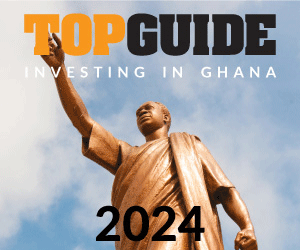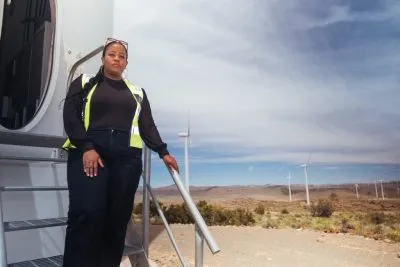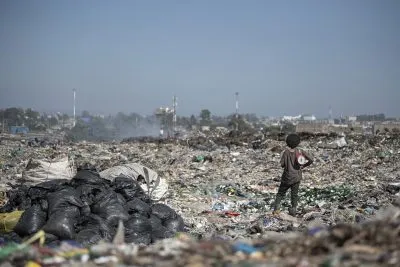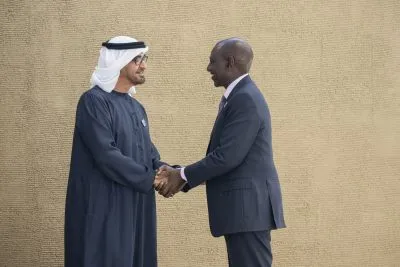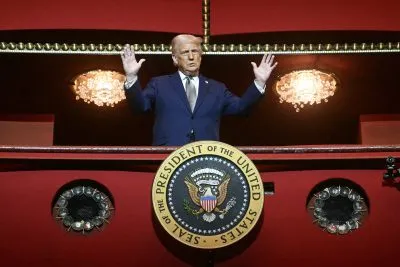As the news of Edgar Lungu’s victory in Zambia’s presidential election reached government strongholds, hundreds of elated supporters took to Lusaka’s streets, dancing and singing in the evening sunshine. Portraits of the victorious president were waved to and fro amid the spray of uncorked champagne. A flailing sausage dog, held aloft and decked in the red shirt and cap of the opposition UPND, provided a final insult to Lungu’s demoralised foes.
The celebrations may have been a chance for Lungu’s supporters to gloat, but for the returned President, the overwhelming feeling will be one of relief. His narrow victory – some 100,000 votes separated him from veteran opponent Hakainde Hichilema – hardly represents a ringing endorsement just a year after winning a nail-biting snap election following the death of President Michael Sata.
With a campaign focused on populist promises of mass infrastructure investment, Lungu’s Patriotic Front successfully appealed to its traditional support in Lusaka and the northern Copperbelt, home to Zambia’s struggling mining industry. The relatively staid vision of Hichilema – a wealthy rancher offering a slate of pro-business policies and cuts to government expenditure – failed to prompt significant defections among wavering PF voters.
Yet Lungu’s glory was also achieved at a price. The democratic fabric of Zambia – more or less intact since the first multi-party elections in 1991 – has shown worrying signs of wear and tear. The opposition repeatedly cried foul in the aftermath of the vote, alleging polling station malfeasance and pointing to unfathomable delays in the Electoral Commission’s three-day long release of results. In the run up to the vote, Lungu used all the advantages of incumbency to force home a win, relying on a supine state media and veiled threats to suspend democracy in defiance of his lawyerly background.
For all the satisfaction of bagging his five-year mandate, Lungu’s victory party is likely to be short. Zambia’s economy has been battered by a global commodities slump. Copper output increased by 8% in a year, according to the Chamber of Mines, but remains far below peak levels. Investment is sorely required in the country’s outdated power and agricultural sectors, both struggling under the pressure of severe El Niño droughts. With growth projected at just 3.4% this year, the electorate’s embrace of Lungu remains lukewarm at best and highly dependent on economic performance.
Until now, the president has responded to the downturn with a brand of economic populism that hoovers up supporters but alienates investors and multilateral lenders. Having won the election by appealing to the former, Lungu will have to walk a tightrope in order to do business with the latter. That could start with a concerted push to establish consistent mining policy, which under Lungu has veered wildly from confrontation to conciliation – resulting in inevitable investment stasis. Yet economic diversification is a must if the country is to replace the tens of thousands of jobs lost in the mining slowdown.
Meanwhile, the IMF are waiting in the wings with a potential emergency support package of $1.2bn, but are unlikely to countenance the renewal of vastly expensive fuel and power subsidies, which are estimated to have set the government back by some $660m. Promises of an infrastructure bonanza paid for with foreign lending are equally unlike to find favour among the IMF top brass. With the government already indicating that it will not sign a deal specifying job cuts or jacked-up healthcare costs, the scene is set for a late-year showdown between Lungu and the Fund.
Having secured power, Lungu now faces a quandary wearily familiar to many African governments – meeting radical election promises while placating the boardrooms of Washington and London. All parties wait on his answer.
David Thomas
Want to continue reading? Subscribe today.
You've read all your free articles for this month! Subscribe now to enjoy full access to our content.
Digital Monthly
£8.00 / month
Receive full unlimited access to our articles, opinions, podcasts and more.
Digital Yearly
£70.00 / year
Our best value offer - save £26 and gain access to all of our digital content for an entire year!

 Sign in with Google
Sign in with Google 

